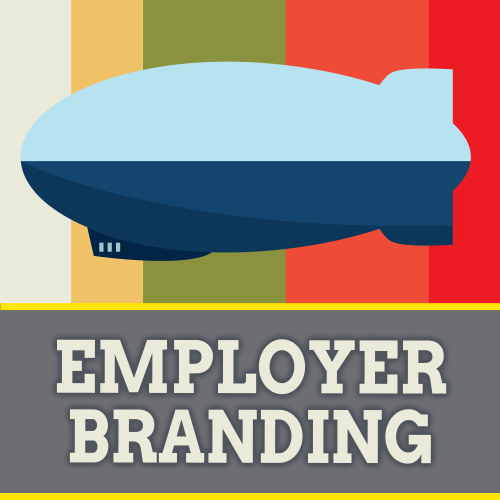SHRM reports that 60% of job seekers quit in the middle of the online job application process because of their length or complexity. This is just one compelling metric that paints a bigger picture as to why candidates quit in the middle of the job application process.
The competition for candidates has grown to a record high. Employers are competing with larger companies who use recruiting algorithms, have a large recruiting budget, or a fully-staffed recruiting team. These investments ensure high candidate engagement so what can we all learn from these tactics? They all reduce the barriers in the hob application procedure.

Forbes reports that job seekers complete forty to sixty applications for every job interview they get. With the current workforce landscape favoring job seekers, candidates have multiple companies to choose from. As a result, they’re probably going to take the path of least resistance and apply to the job with a more convenient job application process—even if another company is slightly better. This is where employers lose great candidates.
Let’s go through some of the common pitfalls of online job application process and what actions your can take to ensure the smoothest and fastest application process.
[Read more: The best way to find employees online]
Tech hurdles in the job application process
Most job applications are completed online. Additionally, jobseekers are applying on average to 2-3 jobs a day with this number being substantially higher for gig work job seekers. As a result, any lag in the job application process means a high probability that candidates will skip applying altogether in order and just move onto the next job posting. Below are some of the biggest contributors to poor applicant experience and areas for improvement in your job application procedure.
Unclear job application instructions
Most job applicants are looking for clear and obvious job application instructions in order to apply. Make sure to clearly state how and where they apply, as well as what information is required of them.
Problems uploading a resume create a barrier in the job application process
With the changing landscape of the hourly workforce and increased use of technology, resumes are becoming less necessary. The problem remains, however, for candidates that are still required to upload a resume through a job board and online job application. Common problems with resume uploading are formatting issues, problems with bullet points, problematic fonts, wrong file format and – the most frustrating – having to re-enter basic information because fields were not populated correctly. According to LinkedIn, not being able to upload a resume can account for 55% of applicants dropping off, and creates problems in the job application procedure.
[Read more: 5 Reasons your application is losing you candidates]
Slow or lack of applicant follow-up creates drop off in your job application process
According to the same LinkedIn article, 44% of candidates were deterred from a job if they couldn’t get a status update on their job application process time. While it’s unknown what the timeframe was, according to Indeed, 44% of candidates hear from employers within a couple weeks of applying; 37% hear back within one week; and only 4% hear back within one day. This is in stark contrast to applicant expectations, especially for hourly workers and freelancers who quickly move on to the next opportunity after 24 hours.
Online Job application process is not mobile-friendly

Having to create login credentials in the job application procedure
Another barrier to completion is asking candidates to create one account to log on to a careers site and a second account to apply through an ATS. Requiring multiple logins can turn off applicants and the job application process suffers. Let’s look at it from the applicant’s perspective. Let’s say a job seeker is applying for multiple jobs on multiple job boards. If they are having to create login credentials every time, this can add hours per week to their job application process.
The application form is too long in the job application process
According to CareerBuilder, 60 percent of job seekers quit in the middle of filling out online job applications because of their length or complexity. If an application requires more than a dozen fields to be filled, applicants are at higher risk for drop off. This creates yet another possibility for submissions not being completed due to the length of the job application process time.
No save option in the job application system
Job applicants are on the move, applying on their mobile devices and may not be able to complete an entire application in one sitting. If a candidate can’t save their progress and come back to the application at a later time, this too, can prevent job seekers from finishing the job application process.
The job application process is too long
Does it take longer than 20 minutes for a candidate to fill out your online job application process? How many steps does it take? Some reports suggest that if an application takes longer than 10 minutes to complete, 50% of qualified job applicants will quit the application.
Your resume is not optimized for the employer’s job application system
Online job applications are usually connected to an employer’s internal job application system known as an applicant tracking system (ATS). ATSs parse and sort resumes by topics or keywords, like education or managing a budget. As a result, if a candidate’s resume isn’t optimized with the right keywords, one of two things can happen. Either 1) the fields are not imported into the ATSs properly and the candidate has to spend time fixing formatting issues, or 2) the employer’s ATS is unable to scan the resume altogether and the job-seeker’s application goes into the dreaded Black Hole.

The listing for your job application doesn’t stand out
Remember – your business is competing with hundreds if not thousands of other employers for the same candidate pool. If your job posting doesn’t tell candidates about your company and grab their attention right away, you are losing candidates at the very top of your hiring funnel, or when sourcing.
A negative employer brand can ruin the job application process for you
Similar to issues with the job post itself, make sure you have a positive representation of your company. This can be as simple as updating your social media pages or company page. Are there negative reviews of your business on Yelp or Glassdoor? You can take active steps to improve your ratings and brand.
Inaccessible company information can hurt your job application procedure
A survey by the Pew Research Center found that 2%, or 4.7 million American adults, said they suffered from a disability or illness that made it difficult or impossible for them to use the internet. For a growing number of companies, that inaccessibility comes at a cost. The US Department of Justice (DOJ), citing the Americans with Disabilities Act, has sued and negotiated millions of dollars in settlements with big brands such as Target, Disney and Netflix, for not designing their websites to accommodate the browsing needs of disabled customers.

Recommendations: Improve your job application process with these types of job application methods
- Use SMS messaging to communicate with qualified candidates right away – SMS has eight times the response rate of email!
- Make applying to your job openings mobile-friendly – According to the 2014 Talent Trends report, 85% of the workforce should be targeted for mobile recruitment.
- Use the candidate’s mobile number or email as their login – this removes the hassle of having to click away from the application and added barrier to apply.
Contact the Fountain team to get a demo of our solution: one seamless job application tool that is mobile-friendly, uses SMS to communicate with candidates and requires no multiple login credentials. Our users experience an average time-to-hire rate of 10.7 days and get upwards of 1300 applicants per job opening!

